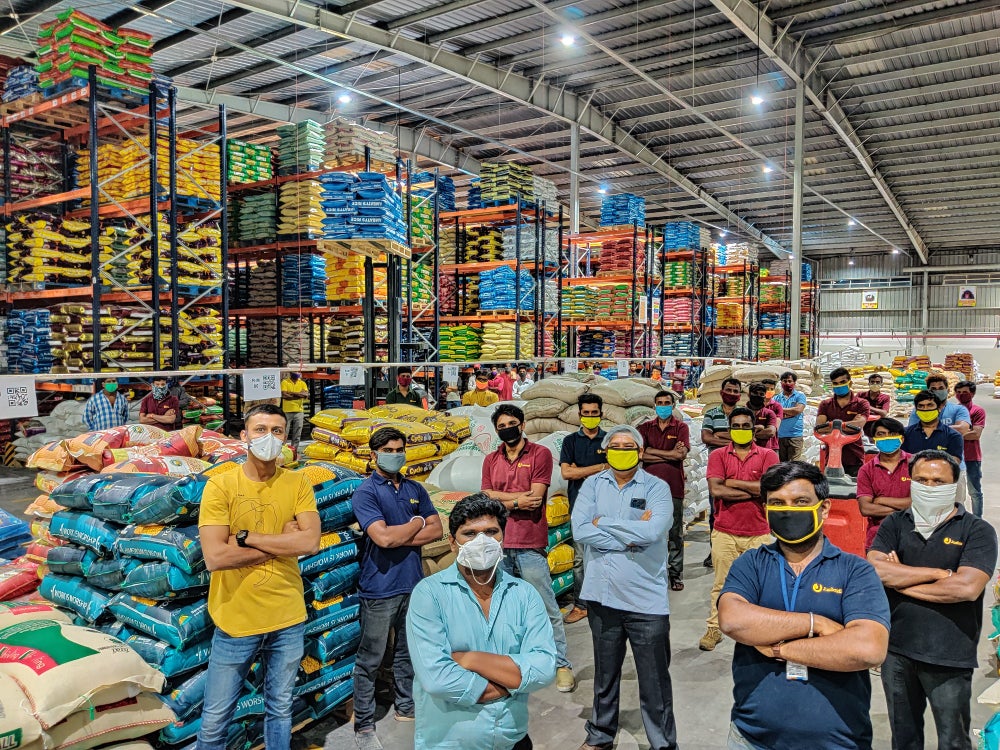Organizing the Kiranas With Technology Bengaluru-based Jumbotail offers a one-stop shop for small retail stores.
By Debroop Roy
Opinions expressed by Entrepreneur contributors are their own.
You're reading Entrepreneur India, an international franchise of Entrepreneur Media.


A majority of India's food and grocery consumption flows through nearly 10 million Kirana (small retail) stores. While the system is old and has worked decently well, these store operators face several key challenges. These include frequent stock-outs, dealing with several different distributors and traders, often needing to visit a physical market far away to procure staples as well as arranging for their transportation.
And that is the problem statement that Jumbotail has taken up. A start-up founded in 2015, the company has used technology to build what it calls a one-stop shop for Kiranas.
"Our marketplace platforms eliminate information asymmetry, aggregate previously unavailable demand and supply data, and significantly improve economic outcomes for manufacturers, brands and kirana owners," says Ashish Jhina, co-founder at Jumbotail.
To do all of this, the Bengaluru-based company uses data-powered insights. "We capture billions of data points and use them to drive efficiency using multiple tools and tech stack," says Jhina.
The company has built its entire logistics and supply chain capabilities in-house as well.
"We lease our vehicles and assets. Our supply chain operations are fully automated via software, and we track the progress in real time using our data and AI driven solutions," he says.
Standing Tall During the Crisis
Even as modern players have struggled to operate during the ongoing Coronavirus crisis, small retail stores in most neighborhoods have managed to stand tall, reinforcing their importance, believes Jhina.
"In the COVID world, kirana stores, combined with their ability to do quick home deliveries, are the need of the hour," he says.
During the lockdown, local knowledge, customer intimacy and convenience of the decentralised local retail network, when combined with the likes of Jumbotail has proved to be a handy combination. Jhina claims the company faced one of the lowest attrition rates in supply chains, and though there was some reduction in staff attendance, it was able to use its scalable tech system to increase productivity.

"Our continuous investments in technologies ensured that we were able to onboard new staff rapidly with minimum training as the AI driven systems in supply chain are designed for attrition and fast recovery," he says.
The company has also deployed their J24 retail store programme within apartment complexes during the crisis. The programme was launched last year as an extension of its offerings with the goal of helping modernise their stores, improving their efficiencies and increasing their sales
"We are able to turn an empty room into a fully functional J24 modern convenience retail store within 24-48 hours."
Expansion
Jhina says the company is in a rapid growth phase, where in the next 3-5 years, it wishes to scale the business to 8-10 cities, and achieve larger scale.
"We will also expand the footprint of our J24 stores and make them ubiquitous by transforming kirana stores to small format modern grocery stores," he adds.
On profitability, Jhina says technology is the key driver. By choosing to focus on solving problems in one major market, he says the company has been able to achieve operational excellence, eliminate losses and then scale the business.
"We are operationally profitable, and we have raised the lowest amount of capital to reach the scale and profitability where we are today. We consider this a significant achievement that many others have not been able to achieve in grocery ecommerce," he says.











